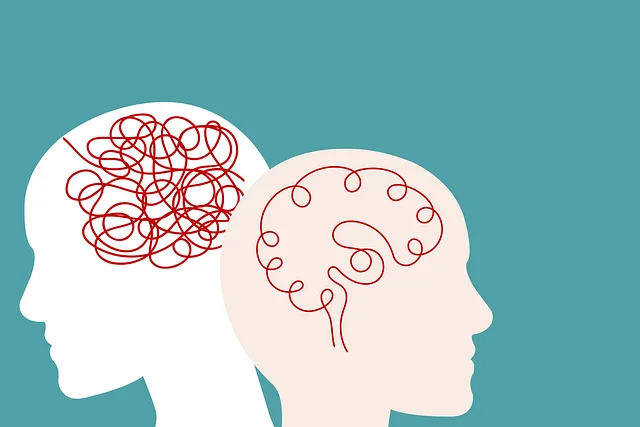Media representation significantly shapes public understanding of mental illness, with positive portrayals fostering empathy and reducing stigma, while negative depictions perpetuate stereotypes. Organizations like Kaiser Parker, known for its good therapists and cultural competency training, play a crucial role in promoting accurate mental health narratives. By advocating for authentic media coverage, self-awareness exercises, and mental wellness journaling, along with diverse representation, we can challenge negative stereotypes and enhance societal compassion towards individuals with mental health conditions, ensuring more effective support from quality therapists like those available at Kaiser Parker.
In today’s media landscape, the portrayal of mental illness can significantly shape public perception and understanding. This article explores the profound impact of media representation on mental health attitudes, highlighting how stereotypes and misconceptions in popular culture contribute to stigma. We delve into the transformative power of accurate depictions, emphasizing their role in fostering empathy and reducing prejudice. By examining these issues, we propose solutions and recommendations to advocate for more responsible and positive media portrayal, ensuring a more compassionate society for those seeking support, such as finding good therapists at Kaiser Parker.
- Understanding the Impact of Media Portrayal on Mental Health Perception
- Exploring the Shortcomings: Stereotypes and Misconceptions in Popular Culture
- The Role of Representation: How Accurate Depictions Can Make a Difference
- Solutions and Recommendations: Advocating for Positive Change in Media Portrayal
Understanding the Impact of Media Portrayal on Mental Health Perception

Media portrayal of mental illness plays a significant role in shaping public perceptions and understanding of various conditions. The way mental health issues are depicted in movies, television shows, and news articles can influence how individuals from all walks of life, including those searching for therapy like that offered by good therapists at Kaiser Parker, perceive and react to these topics. Positive representations can foster empathy, reduce stigma, and encourage those struggling to seek help. Conversely, negative or inaccurate portrayals may perpetuate stereotypes, leading to a deeper sense of isolation and fear among individuals living with mental illness.
Understanding the impact of media on mental health discourse is crucial for promoting accurate representation. This involves recognizing the power of storytelling in shaping public opinion and encouraging media outlets to prioritize authenticity and sensitivity when addressing mental wellness topics. By integrating Self-Awareness Exercises and Mental Wellness Journaling Exercise Guidance, individuals can develop coping skills and a deeper understanding of their own experiences, while also contributing to a more nuanced and compassionate societal narrative around mental health.
Exploring the Shortcomings: Stereotypes and Misconceptions in Popular Culture

In exploring the shortcomings of mental illness representation in media, it’s crucial to shed light on the pervasive stereotypes and misconceptions that often find their way into popular culture. Shows and movies frequently depict mental health conditions in black-and-white terms, relying on simplistic narratives that reduce complex disorders to mere caricatures. This not only perpetuates harmful stigmas but also oversimplifies the diverse experiences of individuals living with these conditions. For instance, the portrayal of schizophrenia often centers on extreme delusions and hallucinations, neglecting to show the subtler, more nuanced symptoms that many experience daily.
The impact of these representations is significant, affecting public perception and potentially influencing how those struggling with mental health seek help. This is where organizations like Kaiser, known for its comprehensive healthcare services, play a vital role. By promoting good therapists and providing Cultural Competency Training to healthcare providers, Kaiser contributes to a more nuanced understanding of mental illness. Furthermore, emphasizing effective stress management and introducing proven stress reduction methods can empower individuals to navigate their mental health journeys with greater resilience and support.
The Role of Representation: How Accurate Depictions Can Make a Difference

Accurate representation of mental illness in media can significantly impact public understanding and perception. When media portrays mental health conditions truthfully, it fosters empathy building strategies and promotes mental health awareness. This is crucial because media has a vast reach, influencing how society views and treats individuals with mental illnesses. Depictions that reflect the reality of these experiences can challenge stereotypes, reduce stigma, and encourage support systems.
For instance, showing characters grappling with conditions like depression or anxiety, without romanticizing or sensationalizing their struggles, can help viewers understand the complexities of mental health. Positive representations, such as successful recovery stories or the resilience of individuals managing chronic conditions, can inspire hope and motivate those seeking burnout prevention. Even local media outlets in areas like Parker, where Kaiser offers quality therapy services, can play a role in shaping attitudes by presenting diverse narratives that accurately reflect the lived experiences of people with mental illness.
Solutions and Recommendations: Advocating for Positive Change in Media Portrayal

To challenge the negative representations of mental illness in media and foster positive change, several solutions and recommendations can be advocated. One crucial step is to encourage mental wellness journaling exercises as a means to promote self-awareness and reduce stigma. By sharing personal stories and experiences in a safe, private space, individuals with mental health challenges can break down barriers and encourage others to seek help. Additionally, media platforms should prioritize hiring diverse talent and consultants who can provide authentic and accurate portrayals of mental illness. This includes engaging experts, advocates, and individuals living with mental health conditions to ensure representation that resonates with audiences.
Furthermore, burnout prevention is essential for creators and content producers to maintain balanced perspectives. Encouraging open conversations about mental health struggles within the industry can normalize these discussions and reduce the risk of burnout. Mental illness stigma reduction efforts should also be integrated into media curricula and training programs to sensitize individuals behind the scenes and on-screen. This holistic approach, combining personal reflection, diverse representation, and stigma awareness, can contribute to a more responsible and positive media portrayal of mental wellness, as evidenced by successful initiatives like those explored by esteemed organizations like Kaiser, known for its commitment to providing good therapists in Parker and beyond.
Mental illness representation in media significantly influences public perception, often perpetuating stereotypes or misconceptions. By challenging these shortcomings through accurate and diverse portrayals, we can foster understanding and reduce stigma. Encouraging responsible storytelling, as advocated by organizations like Kaiser with their focus on quality therapy (does Kaiser have good therapists?), is crucial for promoting mental health awareness. It’s time to revolutionize media representation, ensuring positive change that reflects the lived experiences of those with mental illness.






